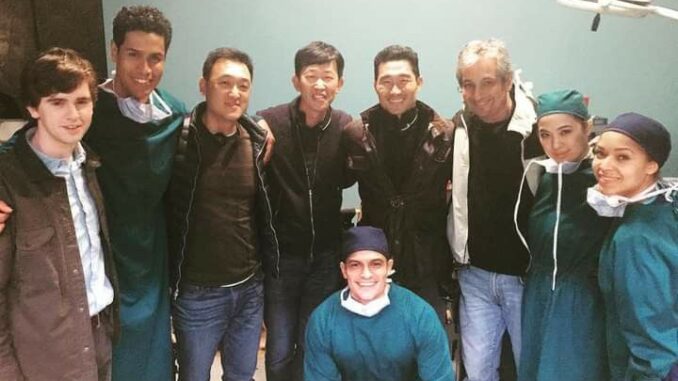
The decision to kill off Dr. Melendez wasn’t made lightly, nor was it the result of behind-the-scenes drama or contract disputes. Instead, it represented a calculated creative choice designed to push the series into darker, more emotionally complex territory. Understanding the reasoning behind this devastating plot twist reveals fascinating insights into television storytelling, character development, and the delicate balance between audience expectations and narrative necessity.
The most revealing insight into Dr. Melendez’s death comes directly from series creator David Shore himself. “We wanted to lose a character that we would feel something about, and feel pain about,” Shore told Deadline, “and certainly, he’s a character that so many of them have been in touch with.” This statement encapsulates the core philosophy behind the decision: meaningful death requires meaningful attachment. Shore’s approach reflects a sophisticated understanding of television drama. Random character deaths can feel gratuitous or manipulative, but the loss of a beloved character forces both the remaining characters and the audience to confront grief, change, and mortality in ways that drive future storytelling. Dr. Melendez’s death was certainly impactful, achieving the emotional resonance the creators sought.
Contrary to speculation about forced departures or creative conflicts, Nicholas Gonzalez himself confirmed that the decision aligned with his own career trajectory. Gonzalez said of his exit from the show to TVLine: “It was a creative decision [that] just kind of came at a good time, you know? There’s a lot about this job that I loved and was honored to do, and a lot of that came out of the family that we created behind the scenes.” During an interview with TVLine, the actor confirmed that it was a “creative decision” for his character to die. This collaborative approach between actor and producers suggests a professional handling of the character’s departure, rather than the acrimonious exits that sometimes plague long-running series.

The character’s relationship with Dr. Claire Browne added another layer of emotional complexity to his departure. Their romantic storyline, which had been building throughout Season 3, reached a heartbreaking crescendo in his final episodes. The character’s final scenes in the season not only see him find closure over his previous relationship with Dr. Claire, but also provided a poignant farewell that honored their connection. The impact of Dr. Melendez’s death extended far beyond the Season 3 finale. In the first two episodes of Season 4, a grieving Claire hallucinated him, demonstrating how the character’s influence continued to shape the series even after his physical departure. This approach to handling character death—allowing the loss to reverberate through subsequent episodes—reflects sophisticated storytelling that respects both the character and the audience’s emotional investment.
The intense fan reaction to Dr. Melendez’s death highlighted both the success and the risk of the creative decision. Fan comments included: “Absolutely loved Neil! This was a huge mistake for the show. … Why would they kill him off?! Loving the story line with him and Claire There was no reason to kill him off. So much more story to tell with him. Way to to loose fan base. I’m not going to watch anymore.” These passionate responses, while painful for the creative team, actually validated their approach. The depth of viewer grief demonstrated that Dr. Melendez had indeed become a character that audiences cared deeply about, making his loss genuinely meaningful rather than merely shocking.
While the search results don’t reveal specific details about whether other characters were considered for death instead of Dr. Melendez, the creative team’s decision-making process suggests careful consideration of narrative impact. The choice of Dr. Melendez over other major characters likely reflected several factors: His established relationships with multiple main characters meant his death would affect the entire ensemble cast, not just a single storyline. His position as a mentor figure created opportunities for character growth among the residents he left behind. His romantic connection with Claire provided a specific emotional anchor for exploring grief and healing.
Dr. Melendez’s death fits within the broader tradition of medical dramas using character deaths to explore themes of mortality, professional dedication, and personal sacrifice. Shows like “Grey’s Anatomy,” “ER,” and “House” have all used similar narrative devices to reset emotional stakes and drive character development. However, “The Good Doctor’s” approach differs in its emphasis on the autism spectrum community and the unique challenges faced by neurodivergent individuals. Dr. Melendez’s death particularly impacted Dr. Shaun Murphy’s understanding of loss and change, providing opportunities to explore how individuals with autism process grief and adapt to major life changes.
